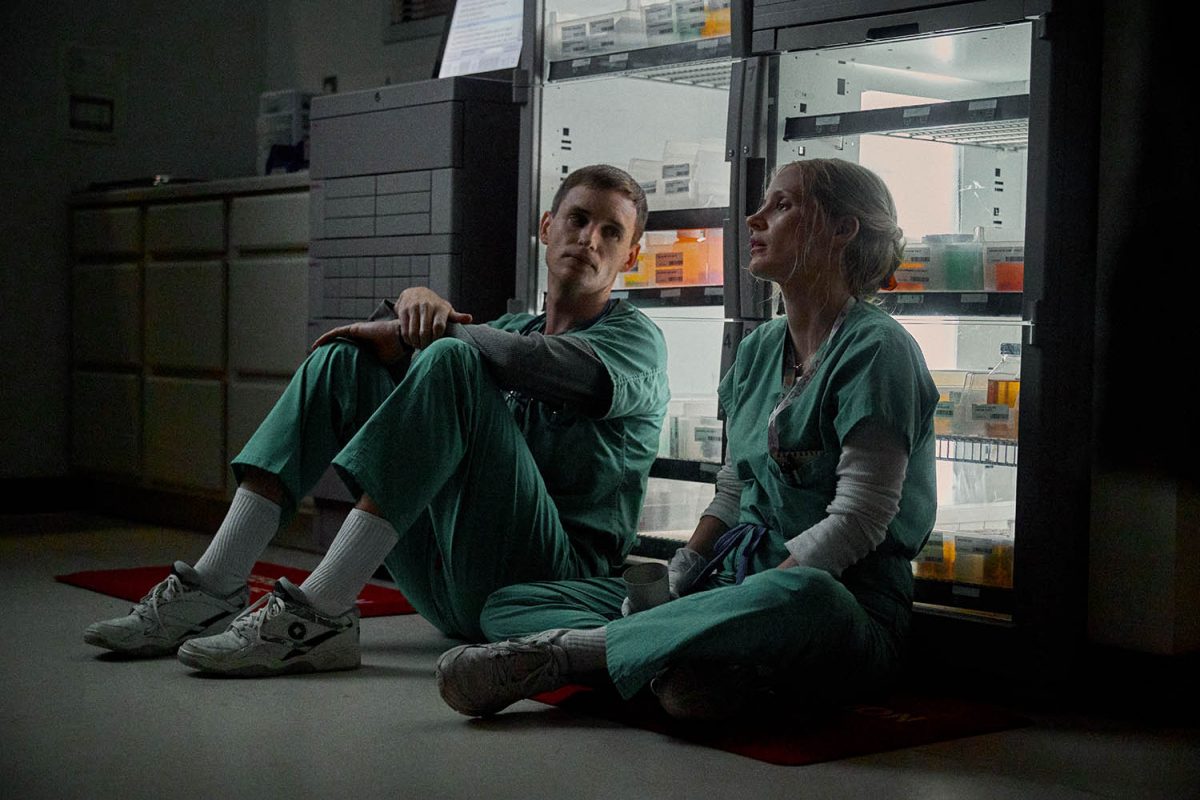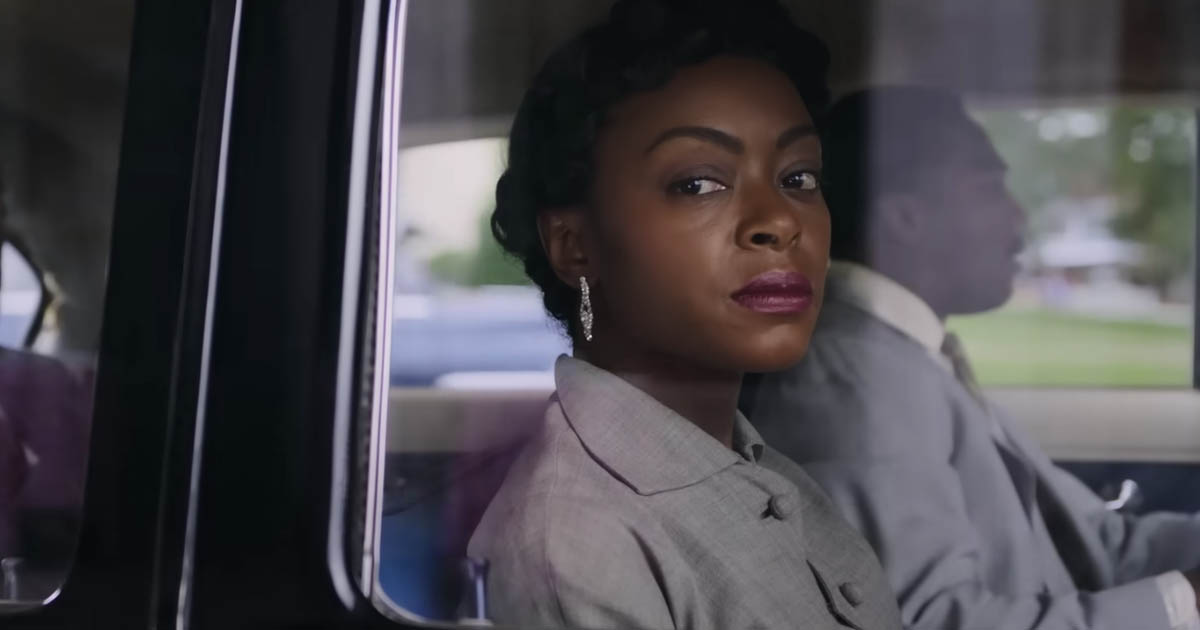 Mainstream cinema remains preoccupied with the exigencies of history on film, recent or distant. In many ways, these encounters with true stories are one of the few assured remnants of cinema made for adult audiences – the prestige cinema in action. Three encounters with history from the last quarter of the year, have been lingering in my mind, albeit for varying reasons: “Amsterdam”, “The Good Nurse” and “Till”. The three films could not be more different from each other, and it’s unlikely they’ll feature in year-end roundups for most critics and curators when 2022 officially ends but before that onslaught of year-end accolades, and before the last few major 2022 releases, let’s consider these recent interrogations of historical crimes, offering a range of perspectives on where contemporary film is at present.
Mainstream cinema remains preoccupied with the exigencies of history on film, recent or distant. In many ways, these encounters with true stories are one of the few assured remnants of cinema made for adult audiences – the prestige cinema in action. Three encounters with history from the last quarter of the year, have been lingering in my mind, albeit for varying reasons: “Amsterdam”, “The Good Nurse” and “Till”. The three films could not be more different from each other, and it’s unlikely they’ll feature in year-end roundups for most critics and curators when 2022 officially ends but before that onslaught of year-end accolades, and before the last few major 2022 releases, let’s consider these recent interrogations of historical crimes, offering a range of perspectives on where contemporary film is at present.
It’s very likely that David O. Russell’s “Amsterdam”, which played for a brief week in local cinemas with scant attendance, will not be seen on many year-end lists. The film has been a box-office failure and a critical bomb but it’s also one of the films from the last quarter of 2022 that I have found myself musing on in different way. This lingering, amidst my own ambivalence about Russell’s approach to conflict and dramaturgy, is a surprise. For every one of his films like “The Fighter”, where he harnesses delicate relationships into something robust and incisive, there is an “American Hustle” where that chaos turns into something too frenetic and self-aggrandising. I did not have high hopes for “Amsterdam” – a crime drama in the vein of “Hustle” and inspired by The Business Plot – a political conspiracy from the 1930s that appears too unwieldly for a filmmaker as erratic as Russell.
“Amsterdam” is erratic, sometimes. Asked to describe it in a single word, I find myself unable to choose just one. What is “Amsterdam”? Sprawling. Chaotic. Unpredictable. Earnest. Cheesy. Fun. Unsubtle. Ambitious. Warm. Sad. Charming. Sly. Unnerving. Sweet. Playful. And good. It is a film that is genuinely good. All these adjectives, and yet a plot account of “Amsterdam” would seem to belie them all. We begin in the 1930s, where our point-of-entry is Burt Berendsen (Christian Bale) – a World War I veteran, who now runs a medical practice for veterans and whose upper-class wife remains estranged from him. Burt and his friend Harold (John David Washington), a fellow veteran turned successful lawyer, fall into a plot filled with murder and subterfuge when their former regiment commander turns up dead. The death is not benign, and neither are the myriad hijinks they wind up in. Before the plot moves forward, though, the story hurtles backward to a sequence during the war where the two men are joined in the past by a Valerie Voze (Margot Robbie), nurse cum spy, and then hurtles back to the present where a series of colourful characters begin to create complications. I would not even dare to itemise the whys and whats of the plot that come to form “Amsterdam” here. Written in black and white, the (mostly true) story seems convoluted and meandering –pejoratively. In practice, the film is convoluted and is meandering, but wonderfully so. This distinction is a small wonder.
What feels best about Russell’s work here (as director, writer, and producer) is the way it seems ambitiously focused on presenting itself as a work of collaborative trust (thematically, but also formally, but also philosophically) so that discrete sections which threaten to strain credulity when examined in isolation, feel woven together with such thought and care that the meanderings and digressions feel central to what is at stake. An important part of this is the presence of constant Russell collaborator Christian Bale, who is both star and co-producer here. Bale is the closest thing to a stabilising force in “Amsterdam”. Not only because his Burt is our entry point, but because he works as audience surrogate (increasingly baffled by the world they have been dropped into) albeit with a sharp through-line of charming diffidence that feels so central here. In lensing and form, “Amsterdam” feels like Russell at a level of maturity that does not confuse maturity with restraint. Instead, Emmanuel Lubezki’s playful camera privileges the picturesque and the horrific, sometimes simultaneously. For every crevice that the camera seeks to explore, the formal precision keeps it coherent.
Of course, the meanderings are the point. The characters feel as if they don’t quite fit with each other, but then offer so much when thrust together (Zoe Saldana’s warmth as a medical examiner feels like it inhabits a different movie than Timothy Olyphant’s menacing thug or Rami Malek’s slick heir). That the plot keeps repositioning itself (Romance? Thriller? Political drama? Noir? Satire?) feels idiosyncratic but also perceptive, acknowledging that like in life, meaning is choice and not a given. Its meaning seems to keep changing up until it arrives to its point, only to feign something serious before it slyly demurs from giving us too explicit a message. “Amsterdam” in its engagement with history is playful and decisive and shrewd, finding room for comedies that actual use form, not just theme, for humour. It has something to say about its historical context but also its real-world context.
Such perspective is a quality which feels absent in Tobias Lindholm’s “The Good Nurse”. Of course, “The Good Nurse” is grappling with more recent, and less broad, history. The film is an account of serial killer Charles Cullen, whose crimes against patients in multiple hospitals come to an end when he meets a nurse (Amy Loughren) at his most recent job. This is the Danish director’s first film in English only. I’m not sure if the film’s colourlessness is owing to the change in language. Some of it is probably dependent on the screenplay from Krysty Wilson-Cairns (“1917”, “Last Night in Soho”), who does a good job of giving us a play-by-play recount of what happened but does a less effective job at turning this into a propulsive drama. Certainly, we wait for the serial killer to be revealed because we instinctively bristle at the murders but the dramatic compulsion of this feels too inert to make “The Good Nurse” more than serviceable.
“The Good Nurse” is dressed up in shades of tedious grey. Its visual language is indistinct and colourless, in a way that perhaps speaks to the same tedium of the hospital as locale. But even that reading of the pallid lensing feels too generous when so much of “The Good Nurse” seems unable to harness the spatial possibilities of a film set primarily in a hospital. It is not that the work here is consistently bad, but more so that it feels void of emotion and more interested in communicating a play by play of events, rather than a film that is astute or thoughtful about the way that formal properties play into the film’s thematic interest in dread and unease.
And yet, Lindholm’s work is not without merit. “The Good Nurse” is, at least, clear-eyed on the performance elements. After her ingratiating and inexplicably Oscar winning turn in “The Eyes of Tammy Faye,” it is so wonderful to be reminded what Jessica Chastain can do when working in a performance that is free of tics and preciousness. Her work here is lacking in affectation and is instead genuine and earnest. In her hands, Amy is not an angelic figure but a woman who feels real and contemplative amidst the reality of the horror she stumbles upon. Eddie Redmayne, playing a figure written too vaguely for his monstrousness to feel visceral, manages to find clarity in a role that could be so indistinct. The cast beyond them is equally compelling – from Kim Dickens as that of bureaucratic monstrosity, to Nnamdi Asomugha and Noah Emmerich’s excellently trenchant policemen and Maria Dizzia, in a single scene as Amy’s former co-worker. These performances feel vivid and lived in so much that some of the credit surely must go to Lindholm. Why then does “The Good Nurse” still feel like a footnote in film form? Like a facsimile of a prestige drama but with no point of view? How strange that the film most temporally close to us of the trio, “The Good Nurse,” also feels like the haziest?
The question of haziness does not apply to writer-director Chinonye Chukwu’s “Till”, a film that sits a bit unnaturally against “Amsterdam” and “The Good Nurse”. The open wound of Emmett Till’s murder, immediately feels harder to parse than the other historical interrogations. That wound is excavated by a story that traces how his mother, Mamie Till (Danielle Deadwyler), confronts the murder of her son and becomes a beacon of the civil rights movement.
In 2019, Chukwu directed the wonderful “Clemency”, about a prison warden whose fate is tested when an inmate tries for a last-minute clemency plea ahead of a potential execution. In “Clemency”, Chukwu directed Alfre Woodard, one of the best actresses alive, to one of the finest performances of her career. The sharp precision of the film was overlooked due to bad promotion from the studio, even as “Clemency” reckoned with issues of race and politics in startling intelligent fashion. “Till”, Chukwu’s third feature film, seems to have gained traction where “Clemency” did not and it’s that recognition that I wrestle with. The fact that the story of Emmett, or Mamie Till has not been brought to the screen in a proper way before is not just a sign of Hollywood’s poor history on race but also speaks to the difficulty of this story – how to avoid the lurid and what to do to make a film that has an artistic thrust rather than a documentary of pain. Like “Amsterdam”, “Till” played for a week in cinemas here to an audience of a handful. Were audiences, too consumed with real world tragedies, unwilling to sit through the trauma??
Perhaps. And even as “Till” feels more muted, and less ambitious than the stellar work of “Clemency” it still offers an important next step in Chukwu’s career. She remains ever perceptive about the dynamics of performance and offers Danielle Deadwyler a role that allows her room for a dynamism that ties the film together. The story of Emmett Till, a young boy murdered by white supremacists in Mississippi in 1955, is one those familiar with the American Civil Rights Movement know. “Till” is obviously weighed by its responsibility, and it lends a tidiness to things that sometimes becomes obtrusive. It is at its best when it lets the anger of its story stir in imagistic moments of silence rather than in speechifying. So, it is the images that feel most cogent, like the camera drawing back to reveal Emmett’s body, or a shot of Mamie and her fiancé Gene that turns into a newspaper clipping, or a shot of a farmhouse from a distance as we hear, but not see, the atrocities that set the film off. There is enough here in craft to emphasise Chukwu’s gifts. Even when the language of the film (co-written with Michael Reilly and Keith Beauchamp) feels too knowing or on the nose (like a final speech from Mamie), “Till” also feels actively engaged in thinking through dynamics of how history plays out on film – how it mutates what we know, and think we know. It is a film made with thought and care.
Yet, I find musing on the way the “importance” of this story is what finally gets Chinonye Chukwu considered by the mainstream when she’s shown so much talent earlier. I cannot help but feel it sends the message that a specific kind of Black story is what gives a Black filmmaker the limelight and it’s that awareness that seems to filter through this specific story of trauma, leaving “Till” bound to a historical event that feels almost too big for a single film.
“The Good Nurse” is streaming on Netflix; “Till” and “Amsterdam” are available to rent on Prime Video and other platforms.








